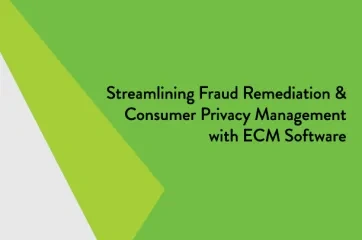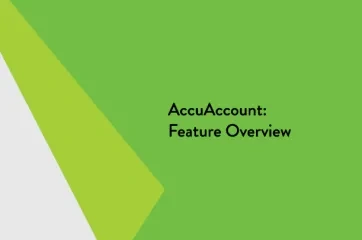Document Tracking
Document tracking is a process that helps financial institutions prevent, identify, and resolve issues related to:
- Existing documents
- Missing documents
- Expiring documents
- Trailing documents
Documents that require ongoing attention
Document tracking is especially important in today’s complex banking environment. Simply knowing what must be tracked for a specific loan type can require considerable thought and expertise. Multiplied across hundreds of relationships and accounts, document tracking can quickly become a time-consuming endeavor without the right systems and processes.
Reasons Why Banks and Credit Unions Track Documents
There are several reasons why document tracking is a common practice among banks and credit unions of all sizes in the United States. Such reasons pertain to:
Customer/Member Relationships: Commercial loans require significant amounts of upfront and ongoing documentation to ensure that a bank or credit union has made (and is continuing to make) prudent lending decisions with customers and members. Regularly collecting account holder financial statements, for example, helps the bank or credit union confirm its assumptions and reduces unnecessary risk.
Regulatory & Compliance: Depending on the type of account holder and loan, a bank or credit union may be required to provide certain disclosures or other information. Tracking that appropriate documentation was provided in the proper time frame and in accordance with regulations helps demonstrate compliance and avoid potential issues during exams.
Collateral: Failing to act during a UCC financing statement continuation period could result in loss of a bank or credit union’s lien position. Tracking future documentation requirements and related due dates is key for avoiding such situations.
Other Risks: When a flood zone policy expires, a bank or credit union may need to take action and ensure the account holder obtains coverage. Failure of a customer or member to act may lead the bank or credit union to force-place coverage, which requires additional due diligence and tracking.
Document Tracking Tools
Many banks and credit unions use some combination of checklists, spreadsheets, core-provided ticklers, and/or custom-built databases to track documents. Others leverage a system like AccuAccount, which combines document imaging and document tracking into a single tool. Connecting imaging and tracking together can reduce overlapping systems that can cause confusion and oversights.
Learn More About Document Tracking
Browse dozens of helpful blog articles about document tracking, imaging, and other relevant topics. Visit our definitions page to read other bank terminology.














